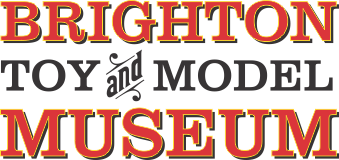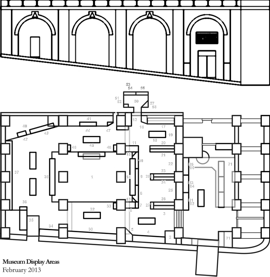Timeline for Bassett-Lowke Ltd
From The Brighton Toy and Model Index
Jump to navigationJump to search
This page gives an overview of the timeline of the history of W.J. Bassett-Lowke Ltd. up until the end of World War Two.
1899
- Bassett-Lowke & Co. established in Kingswell Street, a premises owned by WJ's parents' company.
- Catalogue produced (with photographs pasted in by hand!) and advertised in "The Model Engineer magazine
1900
- A gauge 1 steam loco
- WJ visits the Paris Exhibition and meets Stefan Bing.
1901
- W.J. designs the Black Prince loco model
- Henry Greenly becomes consulting engineer and designer.
1902
- George Winteringham's model railway track joins the catalogue.
- Winteringham joins the company, in charge of a new B-L works.
1903
- B-L get the contract to build a 1:16-scale "simulator" table for the GWR, for teaching railway signalling. This alerts them to the possibility of producing other large custom "exhibition" and "architectural" models.
1904
- "Miniature Railways of Great Britain" company formed for producing garden railways and exhibition/fairground railways.
1905
- WJ produces "Model Railway Handbook" first edition, Catalogue divided into three sections, A (railways), B (engineering) and S (ships).
- Company shows at the Model Engineer Exhibition in London.
1906
- Maharajah's Sterling Silver table railway
- B-L's first electric railway set produced
1907
- B-L shows three-rail system.
- LOWKO brand appears for new electric motors
1908
- Winteringham Ltd. set up, with larger manufacturing facilities.
- Retail outlet at 257 High Holborn, London, managed by E.W. Hobbs.
1909
- B-L becomes a "Limited" company, at a new location.
1910
- London showroom moves to 112 High Holborn.
- 30,000 Cardean locos ordered from Georges Carette.
1914-18
- Shutdown due to war work (manufacturing screw gauges)
1919
- factory enlarged, and new equipment added.
1922
- 00-gauge production in bulk, Edinburgh retail store, US agency established.
1923
- Works extended to cope with larger models.
1927
- Manchester showroom opened.
1929
- Mass-produced "Royal Scot" loco.
1935
- Introduction of Trix Twin Trains.
1940-45
- B-L model production continued through the war, but now for military purposes. Models are built for military identification of friendly and enemy vehicles, and B-L also build planning models and models of hardware to be used in the D-Day landings, such as the Mulberry harbours.
1945
- Towards the close of the war (and for some years afterwards) B-L are involved in making models of the planned post-war town and city-centre reconstruction projects.


